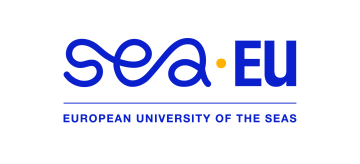ORCID ID 0000-0002-2856-0814
Ana Bocanegra-Valle has been the Editor-in-chief of the LSP journal Ibérica for eight years and is at present Book Review editor for ESP Today (U Belgrade) and RESLA (John Benjamins). She has published articles and book chapters in prestigious journals and publishing houses and has served as peer reviewer for a wide number of journals both in Spain and abroad. She Chaired the Organising Committee of the 38th AESLA Conference and is currently participating in a national R&D project (“Genres and Languages: Academics’ literacy practices in today’s multilingual universities”) and an international Erasmus+ project (“TRAILs: LSP teacher training Summer School”).
This is the only PAIDI Group that focuses upon specialised English and delves into the oral and written communicative uses of the English language in academic and professional settings. Due to its interdisciplinary nature, this Group examines the terminology and discourse that are inherent to specific, and also dissimilar, fields such as the social sciences or engineering. Group members have published extensively and contributed to the dissemination of knowledge in the field with books, chapters, articles, R&D and international cooperation projects, edition and training experience, cooperation with knowledge societies or supervision of dissertations and PhD thesis.
Analysis of oral and written discourse in academic and professional contexts.
Needs analysis of language learning and use in academic and professional contexts.
Content and language integrated learning.
Issues of interculturality in academic and professional settings.
English as an international language for academic and professional communication.
Foreign languages with academic purposes.
Foreign languages with professional purposes.
Teaching methodologies of foreign languages for academic and professional purposes
Terminology applied to academic and professional settings.
ICTs as tools for foreign language teaching in academic and professional contexts.
Languages in contrast for communication in academic and professional settings.
As can be attested from this Group’s publications, dissertation supervision, participation in projects and training courses, members have demonstrated expertise in methodologies and techniques pertaining to (1) qualitative research: conducting interviews, using surveys, observation, text analysis and ethnography; (2) quantitative research: questionnaires, data bases; and (3) copus analysis at both terminological and textual levels. For the analysis of data, members can handle software and computer tools such as NVivo, SPSS, Excel, Google Form, WordSmith or AntConc.
Bocanegra-Valle, Ana
Peter Lang (2020) Vol: . Pgs: 1-344
2. El uso de anglicismos en el contexto del vocabulario académico de Marketing
López-Zurita, Paloma
Onomázein. 2018. Vol: 39. Pgs. 114-139.
Bocanegra-Valle, Ana
Journal of English for Academic Purposes. 2014. Vol: 13. Núm: 1. Pgs. 65-77
4. Promoting specialised vocabulary learning through computer-assisted instruction
Perea-Barberá, María Dolores; Bocanegra-Valle, Ana
T. Read, E. Bárcena y J. Arús (eds.). Languages for Special Purposes in the Digital Era. 2014. New York: Springer-Verlag. Pgs. 129-154.
5. Teacher Attitudes to Language in University Bilingual Education
Rubio Cuenca, Francisco; Moore, Pat
Porta Linguarum. 2018. Vol: Monografico III. Pgs. 89-102.
